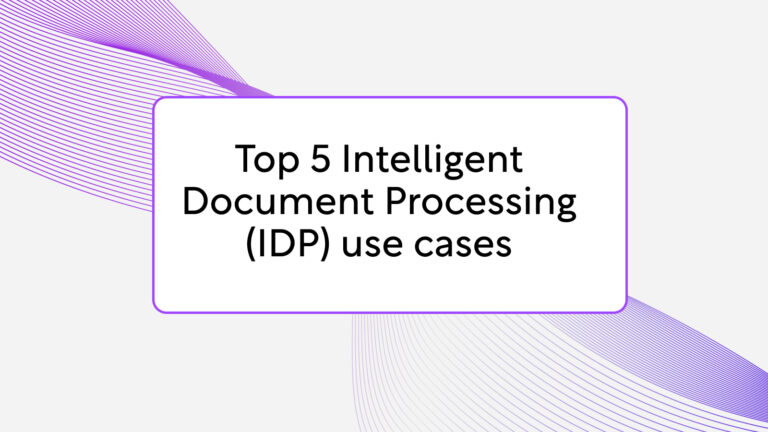The information management landscape is continuously changing. To help you stay ahead of the curve, we share with you top trends to look for in 2020 that will affect the way you manage data.
- Intelligent automation is on the rise
The amount of unstructured content in enterprises is steadily growing. At the same time, the need to find relevant information quickly and use it for business decisions increases.
In the past decade, Robotic Process Automation (RPA) seemed an ideal solution for this. It helped to sift through piles of data and streamline simple, repetitive tasks.
In 2020, RPA will remain popular, but companies will start noticing its limitations. Not every process is an ideal fit for RPA. For example, RPA struggles with unstructured data. As the volume of unstructured data grows, so does the need to manage and analyze it.
Where RPA ends, intelligent automation begins. To gain value from RPA solutions, they should be explicitly programmed. For unstructured data management, it’s nearly impossible due to the diverse nature of data. While traditional rule-based RPA struggles, intelligent automation powered by AI will be on the rise. We expect that in 2020 companies will gain more awareness into the benefits of intelligent automation for processing large amounts of information.
- A growing need for turning data into actionable insights
Probably one thing that most of the companies don’t lack these days is DATA. Over the years, they have eagerly collected all the data they possibly could. Finally, they came to an understanding that being data-rich doesn’t necessarily mean being insight-rich.
Companies have started realizing that there is a lot to be gained from all the data they have at their disposal. As such, getting insight from data will be crucial in 2020.
Firstly, because it will give companies a competitive advantage. Think, for example, of quickly locating contracts that are nearing expiration.
Secondly, it contributes to risk management. Compliance is becoming increasingly important. Companies are, therefore, focusing on solutions that can help them ensure compliance. For example, solutions that make it easier to find documents that are noncompliant and adapt them to current legislation and regulations.
- A call for sustainability creates more need for efficient information management
- The adoption of the cloud creates demand for data quality control
As part of the data migration strategy, it is necessary to assess the quality of the data being migrated. And here, AI-driven content management solutions would be of great help. They can automatically classify data and streamline quality control.
What essential trends in the information management industry do you foresee in 2020?





